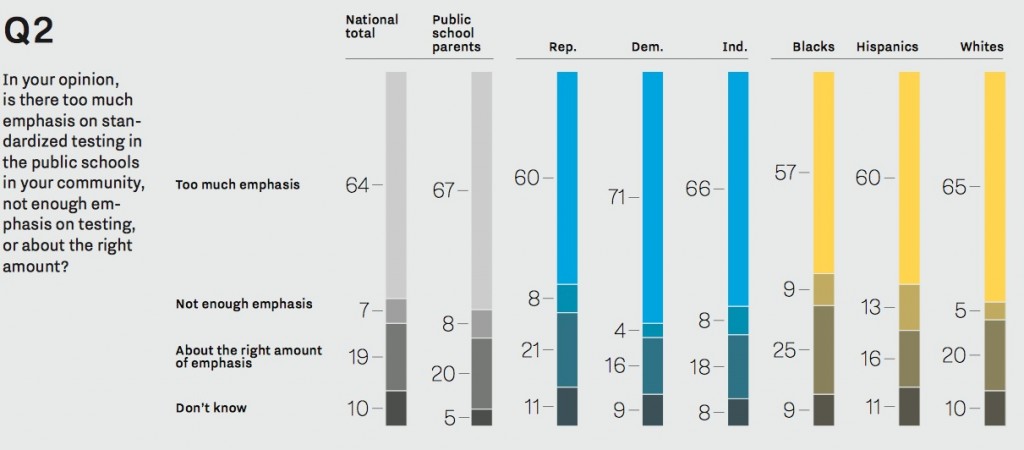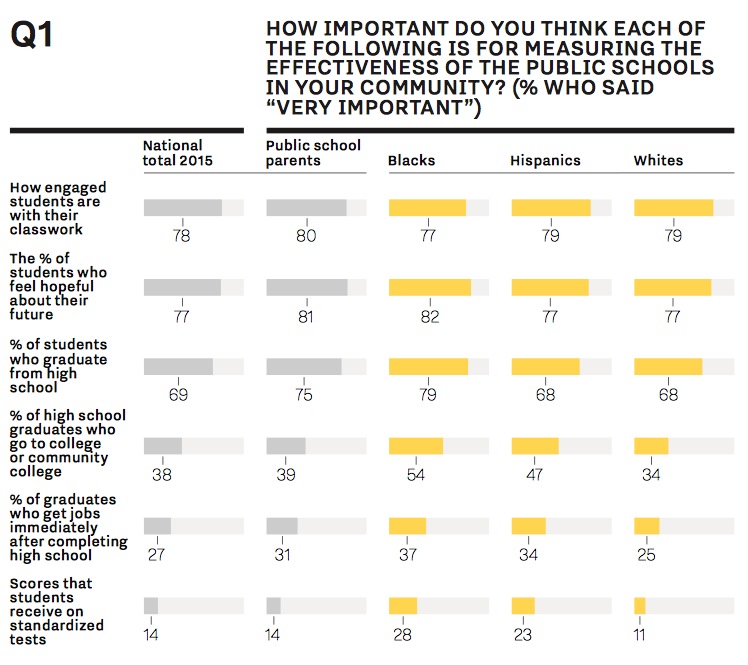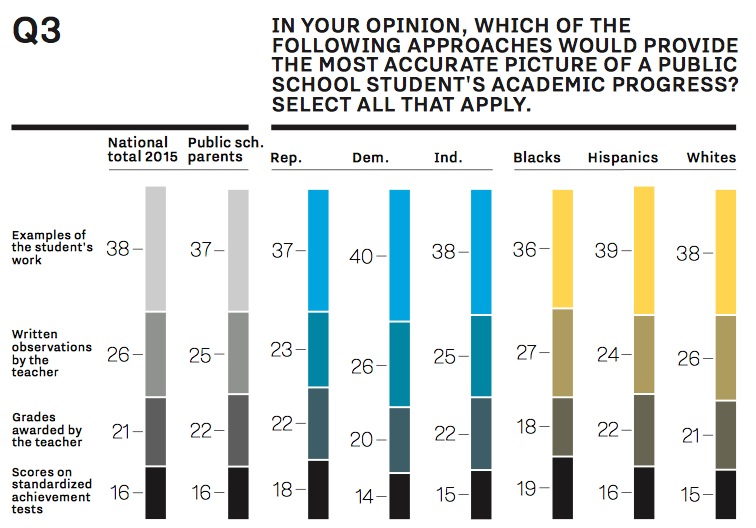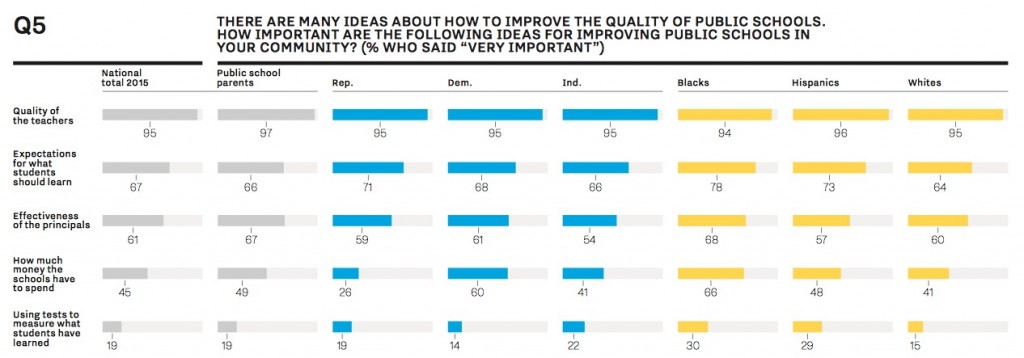Hey, Blue Ribbon K-12 panel! I know the legislators among you are desperate to engineer any excuse you can get not to take the single most important action you can to stem South Dakota’s teacher shortage—i.e., raise teacher pay.
So here’s a distraction for you: end standardized testing! Phi Delta Kappa’s 47th annual survey on attitudes toward public schools finds that the general public puts little faith in standardized tests. 64% of all Americans say their public schools place too much emphasis on standardized testing. That opinion is shared by majorities across partisan and racial groups:

Just like us teachers, most Americans believe there are much better ways to measure kids’ progress than someone else’s tests.

Americans actually put more faith in teachers to tell them how their kids are performing:

The percentage of Americans who think standardized tests are useful tools for school improvement is lower than the percentage of South Dakotans last year who thought our Democratic candidate would be useful as Governor:

These results indicate that legislators could make an awful lot of South Dakotans happy by deëmphasizing standardized tests, respecting the work teachers do, and trusting teachers to make kids smarter and schools better.
Of course, trusting and respecting teachers means paying them more than the worst teacher salary in the nation….
A fluff piece appeared recently that showed the new minimum wage making South Dakota tops in comparison to other states income. By showing the buying power of the dollar (before today’s market crash) in purchasing a home, ours is the best in the land. Of course if you are paying for food, and the other necessities of life, then that changes everything. I keep thinking that the Blue Ribbon panel will suddenly start singing from that same sheet music.
This has not been a distraction of the BRTF. In fact, as a state, the SDDOE in cooperation with the Commission on Teaching and Learning has done great work minimizing the onus of standardized testing on teachers (especially teachers’ evaluations) and focused on teachers using Student Learning Objectives to measure the growth of individual students in their own teacher’s classes. Standardized testing is given its place as an indicator for a school/teacher to focus on for an upcoming academic year.
I do hope the legislature knows and appreciates the remarkable (but silent) work and achievements its own DOE in cooperation with SDEA has achieved in teacher evaluation and student growth in the past few years. There is an interesting history to share of the post 1234 education policy in our state, and the important work (for students and for teachers) that has been completed AFTER the “political players” left the arena.
O, that sounds like a useful history to write. There’s never a perfect stopping point for writing a “complete history,” but perhaps we should write that history up now, with several pages left open for the follow-up that will come when the Legislature (and the electorate?) takes up the Blue Ribbon panel’s recommendations. I can envision an interesting study of education policy from 1234 to whatever omnibus bill we get in 2016. Who would be the key players to interview in those post-1234 developments to this point?